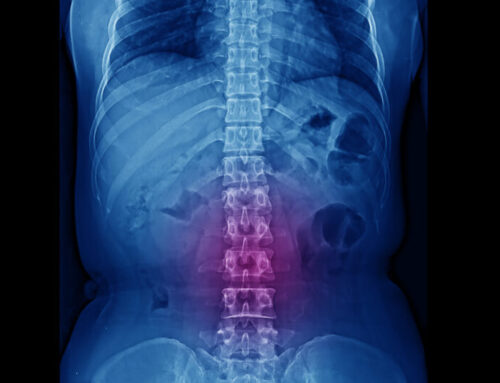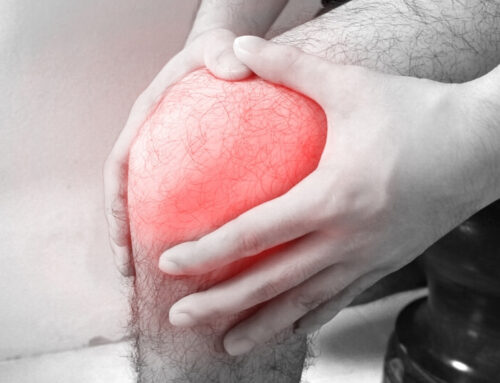
Understanding and Coping with Nerve Pain After Surgery
Nerve pain, also called neuropathic pain, can be one of the most challenging complications following surgery. It’s a discomfort that often lingers well after the initial recovery period, making daily life difficult for those affected. In this article, we’ll explore what nerve pain is, why it occurs after surgery, how to recognize it, and most importantly, how to cope with it.
What is Nerve Pain?
Nerve pain arises when the nervous system is damaged or malfunctioning. Unlike ordinary pain, which is the body’s response to injury or inflammation, nerve pain can occur without an external cause.
Definition and Types of Nerve Pain
Nerve pain can manifest in different ways, from a burning or tingling sensation to sharp, shooting pain. Common types of nerve pain include peripheral neuropathy, where the damage occurs outside the brain and spinal cord, and radiculopathy, where nerves are compressed.
Causes of Nerve Pain After Surgery
Post-surgical nerve pain can happen if nerves are cut, stretched, or damaged during a procedure. Even minor surgeries can sometimes lead to long-term nerve issues. Sometimes, the surgery itself isn’t the direct cause but rather inflammation or scar tissue formation pressing on nearby nerves.
Symptoms to Recognize Nerve Pain Post-Surgery
It’s crucial to recognize nerve pain early to address it effectively. Common signs include burning, tingling, numbness, or a “pins and needles” feeling, especially near the surgical site. In more severe cases, people may experience sudden shooting pain that radiates outward.
Why Does Nerve Pain Occur After Surgery?
The occurrence of nerve pain after surgery can be frustrating, especially after undergoing what seemed like a successful operation. However, several factors contribute to this.
Surgical Trauma and Nerve Damage
Surgical procedures can inadvertently cause nerve damage, especially if the surgery involves areas with many nerves, like the spine or limbs. This damage might be temporary or permanent, depending on the severity.
Common Surgeries Associated with Nerve Pain
Certain surgeries, such as back, knee, or shoulder procedures, are more prone to nerve complications. For instance, spinal surgeries can sometimes irritate or compress nerves, leading to chronic pain after the procedure.
Post-Surgical Inflammation and Nerve Irritation
Inflammation is a natural response to surgery, but it can also lead to nerve irritation. When tissues swell, they may compress nearby nerves, causing pain that persists long after the tissue has healed.
Risk Factors for Developing Nerve Pain Post-Surgery
Not everyone will develop nerve pain after surgery. However, certain factors can increase the likelihood of experiencing this type of pain.
Pre-existing Conditions
Individuals with conditions such as diabetes, which already affects nerve health, are more prone to developing nerve pain after surgery.
Surgical Techniques and Procedures
Some surgical methods may carry a higher risk of nerve damage. Complex surgeries involving delicate areas or those requiring significant incisions are more likely to impact surrounding nerves.
Age and Lifestyle Factors
Age can play a significant role in nerve healing. Older adults may not recover from nerve injuries as quickly, increasing the chances of prolonged nerve pain. Similarly, an unhealthy lifestyle can slow the body’s natural healing processes.
Signs and Symptoms of Nerve Pain After Surgery
Recognizing nerve pain is key to managing it effectively. The symptoms can vary widely but tend to have some common characteristics.
Recognizing Neuropathic Pain
Neuropathic pain typically feels different from regular post-surgical pain. It’s often described as burning, tingling, or electric shock-like sensations. These symptoms may worsen at night or during periods of rest.
Differentiating Nerve Pain from Other Types of Post-Surgical Discomfort
While some discomfort is normal after surgery, nerve pain tends to persist beyond the expected recovery period. If the pain worsens over time or if sensations like numbness or weakness accompany it, this may indicate nerve damage.
Diagnosing Nerve Pain After Surgery
Proper diagnosis is crucial to managing post-surgical nerve pain effectively. Diagnosis typically involves several steps to rule out other causes of discomfort.
Physical Examination
A thorough physical exam can help your doctor determine if nerve pain is likely the cause of your symptoms. Your doctor may test your reflexes, muscle strength, and ability to feel certain sensations.
Imaging Tests
Sometimes, imaging tests like MRIs or CT scans are needed to visualize the area of surgery. These tests can help identify any structural issues, such as inflammation or scar tissue pressing on nerves.
Nerve Conduction Studies and Electromyography (EMG)
For a more detailed diagnosis, your doctor might recommend a nerve conduction study or an EMG. These tests assess how well your nerves are transmitting electrical signals and whether muscles are responding appropriately.
Treatment Options for Post-Surgical Nerve Pain
Once nerve pain is diagnosed, several treatment options are available. The approach depends on the severity of the pain and how long it has persisted.
Medications for Nerve Pain Relief
Medications are often the first line of defense. These may include pain relievers, anticonvulsants, or antidepressants that have been shown to relieve nerve pain. Opioids are generally avoided due to their risk of addiction and other side effects.
Physical Therapy and Rehabilitation
Physical therapy can help improve mobility and reduce pain. By strengthening the muscles around the surgical site, physical therapy may relieve pressure on the affected nerves.
Complementary Therapies and Alternative Medicine
In addition to conventional treatments, complementary therapies like acupuncture, massage, and chiropractic care may offer relief. These methods aim to reduce inflammation, promote circulation, and improve nerve health naturally.
Medications for Nerve Pain After Surgery
When managing nerve pain after surgery, medication can provide significant relief. However, the type of medication prescribed depends on the individual and the severity of the pain.
Over-the-Counter Pain Relievers
For mild to moderate nerve pain, over-the-counter pain relievers like ibuprofen or acetaminophen may help. These medications reduce inflammation and provide short-term relief.
Prescription Medications
For more severe pain, doctors may prescribe stronger medications, such as anticonvulsants or antidepressants. These medications work by affecting how nerves transmit pain signals to the brain.
Long-term Pain Management Strategies
If nerve pain persists, long-term pain management plans may include a combination of medications, physical therapy, and lifestyle changes to help manage symptoms.
Non-Medical Treatments for Nerve Pain
Beyond medications, several non-medical treatments can help alleviate nerve pain and improve overall quality of life.
Heat and Cold Therapy
Applying heat or cold to the affected area can reduce inflammation and improve circulation. Alternating between the two can be particularly effective in managing pain.
Acupuncture and Massage Therapy
Acupuncture is an ancient technique that involves inserting thin needles into specific points on the body. Massage therapy can also help release tension in muscles and improve circulation.
TENS (Transcutaneous Electrical Nerve Stimulation)
TENS units deliver small electrical impulses to the nerves, which can help block pain signals from reaching the brain. This non-invasive method is often used in conjunction with other treatments.
Lifestyle Adjustments to Manage Nerve Pain
Making certain lifestyle changes can help alleviate nerve pain and improve recovery after surgery.
Diet and Nutrition
A diet rich in vitamins and minerals, particularly those that support nerve health, can aid in recovery. Foods high in omega-3 fatty acids, like fish and walnuts, are particularly beneficial.
Exercise and Movement for Nerve Health
Regular movement is essential for nerve health. Low-impact exercises, such as walking, swimming, or yoga, can improve circulation and reduce inflammation.
Managing Stress and Anxiety Related to Chronic Pain
Chronic pain can lead to stress and anxiety, which, in turn, can worsen the pain. Mindfulness practices, relaxation techniques, and therapy can help manage the emotional toll of nerve pain.
Emotional and Psychological Impact of Nerve Pain
Living with chronic nerve pain can take a toll on mental health. It’s important to address both the physical and emotional aspects of pain management.
Dealing with Chronic Pain’s Mental Toll
Chronic pain often leads to depression, anxiety, and feelings of hopelessness. It’s crucial to recognize these feelings early and seek professional help when needed.
Seeking Support from Therapists and Support Groups
Therapy can provide valuable coping mechanisms for dealing with chronic pain. Support groups, whether online or in-person, can also offer a sense of community and understanding.
When to Seek Medical Attention for Nerve Pain
While some nerve pain can be managed with home treatments, there are times when professional medical attention is necessary.
Worsening Symptoms
If your nerve pain worsens or if new symptoms, such as weakness or loss of coordination, develop, it’s important to seek medical help.
Ineffective Pain Management
If your current treatment plan isn’t providing relief, your doctor may need to adjust your medications or explore other treatment options.
Indicators of Long-Term Nerve Damage
Numbness, persistent tingling, or sharp pain that lasts for months after surgery could indicate long-term nerve damage. Early intervention is critical in preventing further deterioration.
Preventing Nerve Pain After Surgery
Though not all nerve pain is preventable, there are steps you can take before and after surgery to reduce the risk.
Pre-Surgical Preparations
Before surgery, discuss your risk factors for nerve damage with your surgeon. If you have pre-existing conditions like diabetes, taking steps to manage them before surgery can reduce the likelihood of nerve complications.
Surgical Techniques to Minimize Nerve Damage
Surgeons can use specific techniques to reduce the likelihood of nerve damage, such as minimally invasive procedures and careful nerve identification during surgery.
Post-Operative Care and Follow-Up
Proper post-operative care is essential in preventing complications that could lead to nerve pain. Following your doctor’s instructions regarding rest, medication, and physical therapy can reduce the likelihood of developing chronic pain.
Coping Mechanisms for Living with Nerve Pain
Living with nerve pain can be challenging, but developing healthy coping strategies can make a significant difference.
Developing a Pain Management Routine
Consistency is key when managing chronic nerve pain. Establishing a routine that includes medications, physical therapy, and self-care can help you regain control of your life.
Building a Support System
Having a strong support system of family, friends, or support groups can provide emotional strength and encouragement during difficult times.
Staying Positive Through Recovery
While it can be easy to focus on the pain, staying optimistic is essential for long-term recovery. Celebrating small victories and progress can boost morale and keep you motivated.
Advances in Surgical Techniques to Reduce Nerve Pain
Medical science is continually evolving, and new advancements in surgical techniques offer hope for reducing post-operative nerve pain.
Minimally Invasive Surgery
Minimally invasive procedures, such as laparoscopic surgeries, significantly reduce the risk of nerve damage by limiting tissue disruption.
Innovations in Pain Management
Innovative pain management techniques, such as nerve blocks and targeted drug delivery systems, are improving outcomes for patients suffering from post-surgical nerve pain.
Nerve Regeneration Research
Exciting new research into nerve regeneration holds promise for those with long-term nerve damage. Scientists are exploring ways to stimulate nerve growth and repair damaged nerves.
Long-Term Outlook for Patients with Nerve Pain After Surgery
Nerve pain can be frustrating, but with the right treatment, many patients experience significant improvement.
Can Nerve Pain Heal Over Time?
In some cases, nerve pain heals on its own as the nerves regenerate. However, this process can take months or even years, depending on the severity of the damage.
Managing Chronic Pain for a Better Quality of Life
Even if nerve pain doesn’t fully heal, many patients find ways to manage their symptoms effectively and maintain a good quality of life. With the right combination of treatments, coping mechanisms, and support, living with nerve pain can become more manageable.
Frequently Asked Questions (FAQs)
Can Nerve Pain Develop Months After Surgery?
Yes, in some cases, nerve pain can appear several months after surgery due to delayed healing or the development of scar tissue.
Is Nerve Pain Permanent?
Not always. While some nerve pain may be long-lasting, many patients see improvement over time with proper treatment.
What is the Best Way to Manage Nerve Pain Long-Term?
A combination of medications, physical therapy, lifestyle adjustments, and emotional support is often the most effective approach for long-term nerve pain management.
Can Nerve Pain Be Prevented?
While not all cases of nerve pain can be prevented, proper surgical techniques and post-operative care can significantly reduce the risk.
When Should I See a Doctor for Nerve Pain?
If your pain worsens, new symptoms appear, or your current treatment isn’t working, it’s time to consult your doctor.
Are There Natural Remedies for Nerve Pain?
Some patients find relief with complementary treatments like acupuncture, massage, and dietary changes. However, it’s important to consult your doctor before starting any new treatments.
Conclusion
Coping with nerve pain after surgery can be challenging, but with the right treatments and support, it is manageable. Whether through medication, physical therapy, or lifestyle changes, many patients find relief and regain their quality of life.
Share this article
Follow us
A quick overview of the topics covered in this article.
- What is Nerve Pain?
- Why Does Nerve Pain Occur After Surgery?
- Risk Factors for Developing Nerve Pain Post-Surgery
- Signs and Symptoms of Nerve Pain After Surgery
- Diagnosing Nerve Pain After Surgery
- Treatment Options for Post-Surgical Nerve Pain
- Medications for Nerve Pain After Surgery
- Non-Medical Treatments for Nerve Pain
- Lifestyle Adjustments to Manage Nerve Pain
- Emotional and Psychological Impact of Nerve Pain
- When to Seek Medical Attention for Nerve Pain
- Preventing Nerve Pain After Surgery
- Coping Mechanisms for Living with Nerve Pain
- Advances in Surgical Techniques to Reduce Nerve Pain
- Long-Term Outlook for Patients with Nerve Pain After Surgery
- Frequently Asked Questions (FAQs)
- Conclusion











